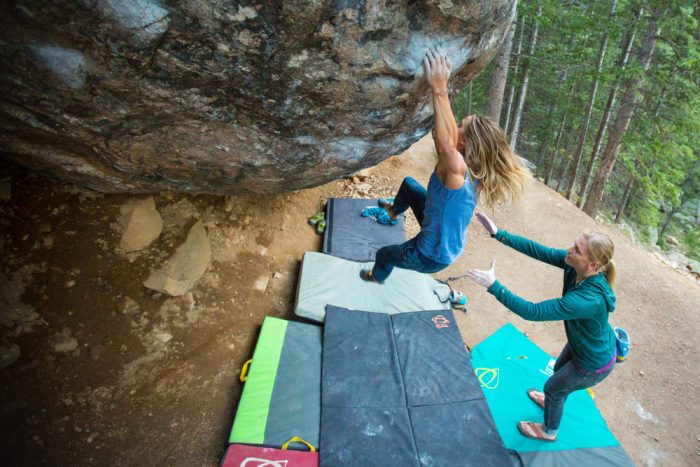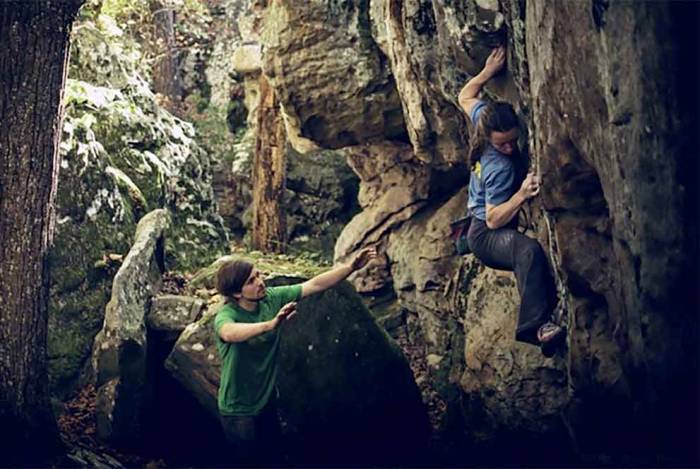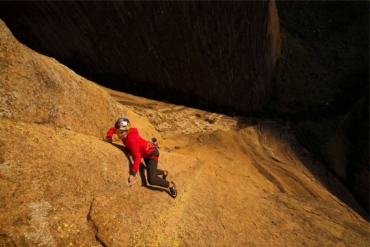Researchers found bouldering helps alleviate symptoms in people struggling with depression and anxiety.
Bouldering requires mental focus, physical exertion, and, oftentimes, a friend’s help. Those factors make the activity a unique tool in treating depression, according to a study by the University of Arizona.
Researchers Eva-Maria Stelzer, a doctoral student at UA, and Katharina Luttenberger, a doctor in human biology at the University of Erlangen-Nuremberg (Germany), last week published their findings from a 24-week study.
The results suggest the physical, mental, and social aspects of bouldering can markedly reduce feelings of depression and anxiety.
Bouldering To Treat Depression
Stelzer and Luttenberger led a team that evaluated more than 100 participants in Germany, where some hospitals use climbing as a therapeutic treatment.
Most participants were new to bouldering. Individuals were divided into two groups: Half had immediate access to bouldering, the other half had to wait.
Each person bouldered for three hours a week for eight weeks, and researchers measured their depression levels using the Beck’s Depression Inventory at various points throughout.
The findings showed that during “therapy” the scores of those with immediate access to bouldering improved by 6.27 points. Or, a full severity grade lower, dropping from “moderate” depression to “mild.”

By comparison, those who had to wait to boulder had an improved score of 1.4 points.
According to the study’s authors, bouldering is effective for a number of reasons.
“You have to be mindful and focused on the moment. It does not leave much room to let your mind wonder on things that may be going on in your life—you have to focus on not falling,” Stelzer said.
“Bouldering not only has strong mental components, but it is accessible at different levels so that people of all levels of physical health are able to participate.”
Stelzer will present the findings during the Association for Psychological Science Convention, held this week in Boston.
Not A Cure
Both Stelzer and Luttenberger are experienced climbers. They noted the sport’s immediacy and demand for focus made it a prime fit to help with depression.
But the social elements of climbing and bouldering were also integral. Stelzer noted that isolation is a key culprit in the fight against depression.
In addition to the eight-week “climbing intervention” researchers taught participants about meditation, mindfulness, and how to cultivate “positive social interactions” over the 24-week study.
As a result, the researchers are developing a manual that outlines an eight-week program that incorporates bouldering and psychotherapeutic counseling.
“I hope this study and future studies are able to impact a life,” Stelzer said. “Even though a variety of treatment options exist, less than one-third of people receive treatment for their symptoms.”
According to the National Institute of Mental Health, about 16.1 million American adults cope with depression.
The study’s findings are encouraging, though bouldering itself is not a cure-all.
As Luttenberger noted, “I’d always encourage patients to do the sport they like — may it be climbing or something else — as a sport is a wonderful possibility to prevent all possible sorts of illnesses, mental and physical.”









